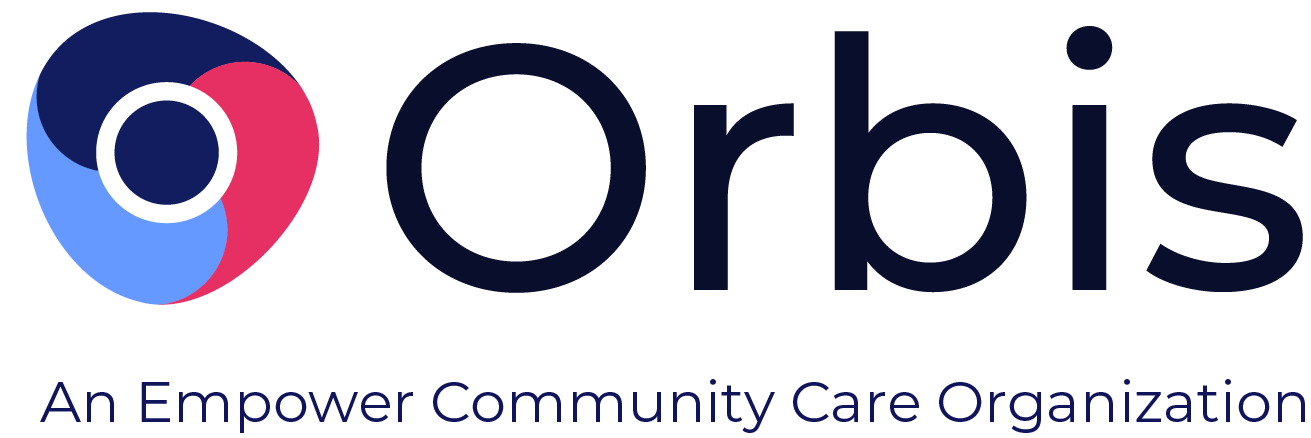Assessments are essential in the human services and criminal justice sectors, but those focusing on strengths and capabilities rather than only deficits hold transformative power. Why?
Because how we evaluate and support individuals matters, particularly at-risk youth and adults who have often been overlooked and misunderstood. Adding strengths to risk/needs assessments provides for a much fuller profile of the client that may be missed when strengths are not systematically measured.
At their core, strength-based assessments are designed to unearth and leverage an individual's unique strengths, talents, and capabilities. Instead of fixating on deficits or limitations, they aim to identify and harness each person's inherent potential.
Let's explore the significance of embracing strength-based assessments and their profound impact.
Understanding Strength-Based Approaches and Assessments
The critical distinction between a strength-based and traditional approach lies in their perspective. A more conventional approach tends to view individuals only through a lens of deficits, emphasizing what they lack or struggle with. While valuable in helping identify needs, when used alone, this approach can inadvertently perpetuate a negative narrative, especially for at-risk youth and adults who may already face numerous challenges.
In contrast, adding a strength-based approach centers on recognizing and utilizing an individual's strengths, particularly in challenging situations. It stands out for its client-centered nature, driven by the client's needs, and its focus on achieving future goals based on their strengths.
This approach aims to empower individuals for self-directed change. Promoting a positive outlook reshapes how individuals perceive their dignity, abilities, rights, idiosyncrasies, and commonalities. It encourages individuals to envision their best selves, fostering self-worth and utilizing strengths rather than dwelling on weaknesses.
Additionally, the strength-based approach extends its perspective beyond the individual, considering the impact of the environment. It identifies constraints that can impede an individual's growth, particularly when confronting social, personal, and cultural challenges.
Standards and Guiding Principles of a Strength-Based Approach
Experts propose six standards for identifying a strength-based approach:
- Goal orientation: The client needs to establish goals.
- Strength assessment: Clients should identify and evaluate their strengths and inherent resources.
- Environmental resources: Connect clients with resources in their surroundings that can be beneficial or facilitate connections to these resources, which may include individuals, associations, institutions, or groups.
- Tailored methods for different situations: Depending on the context, select methods accordingly. For instance, instead of clients establishing their goals before they identify strengths, with strength-based case management, individuals first identify their strengths through an assessment.
- Relationship fostering hope: Help clients discover their strengths and connect to supportive networks, inspiring hope.
- Empowering choice: Each person possesses expertise in their strengths, resources, and aspirations. The practitioner is responsible for enhancing their decision-making and encouraging informed decisions.
Additionally, nine fundamental principles guide the Strength-Based Approach:
- Everyone has unique qualities that aid personal growth, including potential, strengths, and capabilities.
- What receives attention or focus shapes the client's aspirations and eventually becomes reality.
- Language influences our reality, so it should be used thoughtfully.
- Embrace change as a natural part of life without resistance.
- Authentic support for others deepens relationships and adds meaning to them.
- Clients are the narrators of their life stories.
- Utilize your knowledge and experiences to envision the future.
- Capacity-building encompasses various aspects and requires flexibility.
- Collaboration, adaptability, and valuing differences are vital components of this approach.
Examples of Strength-Based Approaches and Assessments
Research shows that strengths-based approaches are applicable across various levels, from individuals to communities. A growing array of practice methods is emerging, rooted in and expanding upon the core principles of the strength-based perspective.
Some of these methods may be used with others, while others stand alone. Examples include, but are not limited to:
-
- Solution-focused therapy shifts the focus from problems to individuals' aspirations, encouraging those receiving services to chart their own paths and solutions toward their goals.
- Strengths-Based Case Management combines a focus on individual strengths with principles like promoting informal support networks, encouraging assertive community involvement by case managers, and emphasizing the client-case manager relationship. This approach helps participants achieve specific desired outcomes.
- Narrative approaches are used by practitioners to highlight the strengths of individuals and communities. Narrative practice can shape lives through personal stories, focusing on resilience rather than directly addressing problems. It involves externalizing issues, separating them from individuals, and addressing them constructively.
- Family support services are preventive measures to assist families at risk of child welfare issues. They aim to enhance family life, nurture existing strengths, and strengthen social support networks, believing this benefits families by increasing program engagement, family efficacy, and empowerment.
- Motivational Interviewing (MI), while not a treatment model, has become one of the most popular case management tools for justice-involved populations as well as a broad reach of services for clients who desire or need to change behavior. MI is the epitome of a strength-based approach and can be easily integrated with a variety of approaches.
- Strengths-based assessments capitalize on strengths and protective factors to promote client success. Obis Partners has several assessment instruments designed to fit the needs of specific population groups: a Youth Assessment for younger populations, an Adult Risk Assessment for criminal justice clients, a gender-responsive Assessment for Adult Women, and an Offender Assessment for adult re-entry populations.
The Role of Strength-Based Assessments in Criminal Justice
Traditionally, the criminal justice system has primarily focused on identifying an individual's shortcomings and risks. However, the emphasis on deficits alone often overlooks the potential for change and growth.
Strength-based assessments redirect our focus toward an individual's assets and capabilities. By doing so, they unveil a wealth of untapped potential. Whether recognizing an individual's determination or unique talents, these assessments empower the justice system and the individuals within it to foster positive change.
Emphasizing Potential and Resilience
One of the major advantages of strength-based assessments in the criminal justice system is their ability to shine a light on an individual's potential and resilience. These assessments acknowledge that everyone, regardless of their past actions, possesses inherent strengths that can serve as a foundation for rehabilitation and reintegration into society.
By shifting the narrative from simply eliminating problems to a lens of growth, strength-based assessments encourage a more empathetic and practical approach within the criminal justice system. They pave the way for tailored interventions and support aligned with an individual's strengths, increasing the likelihood of successful re-entry and reducing recidivism rates.
One of the key advantages of assessing strengths is that when results are shared with clients, it dramatically enhances our ability to build connections. By being able to talk to clients about their strengths and potential, we open up a whole new language and discourse that builds essential rapport between clients and case managers and mobilizes engagement. In a future blog, we’ll discuss this important case management approach and method for energizing the successful planning process.
Improving Behavioral Health Outcomes
Conventional approaches to behavioral health assessments have frequently centered on the medical model of diagnosing disorders and identifying deficits. While this diagnostic lens serves a purpose, it often neglects a critical aspect of an individual's journey—their strengths. On the other hand, strength-based assessments turn the spotlight toward what individuals bring to the table rather than purely what they lack.
By acknowledging an individual's inherent strengths, whether it be resilience, adaptability, or personal talents, these assessments create a more comprehensive and human-centered view of mental health. They recognize that individuals possess inner resources to harness in driving positive change.
Tailoring Interventions and Treatment Plans
One of the most compelling aspects of strength-based assessments is their ability to inform tailored interventions and service plans. Traditional approaches often rely on standardized treatments, which may not resonate with an individual's strengths and needs.
Strength-based assessments, on the contrary, allow clinicians and mental health professionals to design or combine evidence-based interventions that are personalized and aligned with an individual's capabilities. This personalized approach increases the likelihood of successful outcomes, as it leverages an individual's strengths as a driving force for healing and growth.
Broader Implications of Strength-Based Assessments
The ripple effects of adopting strength-based assessments resonate throughout various sectors. They challenge long-standing conventions within criminal justice and behavioral health by reframing our understanding of individuals. These assessments promote a more humane and empathetic approach by emphasizing strengths over deficits.
In the criminal justice system, this shift may translate into reduced recidivism rates and, consequently, safer communities. For individuals within the system, it means a greater likelihood of successful rehabilitation and reintegration into society.
In behavioral health, the implications are equally profound. Strength-based assessments offer the potential for more effective treatment plans and improved mental health outcomes. They also reduce stigma surrounding mental health issues, fostering a more accepting and supportive environment for those seeking support.
The Promising Future of Strength-Based Approaches
Looking ahead, the future of strength-based assessments appears promising. As we continue to refine and expand upon these approaches, we can anticipate even more significant strides in supporting and empowering individuals facing challenges.
Innovations in technology, coupled with a growing understanding of the human psyche, are likely to pave the way for more precise and tailored strength-based assessments. These assessments will enhance our ability to recognize and nurture individual strengths and contribute to the evolution of our systems and practices.
The Bottom Line
The resounding message is clear: emphasizing strengths can catalyze remarkable change. It reframes how we perceive individuals, both within the criminal justice system and the realm of behavioral health. It fosters hope, resilience, and the belief in human potential. Shifting to strength-based assessments isn't just a choice; it's a commitment to a brighter, more inclusive future where all individual's capabilities are recognized and celebrated.
Orbis Partners provides solutions for criminal justice and human services systems, specializing in designing and implementing services for at-risk client groups. Orbis' risk, needs, and strengths assessment tools are designed to guide the casework process by incorporating an individual's unique needs. For more information about our assessments, visit our Assessments page.


